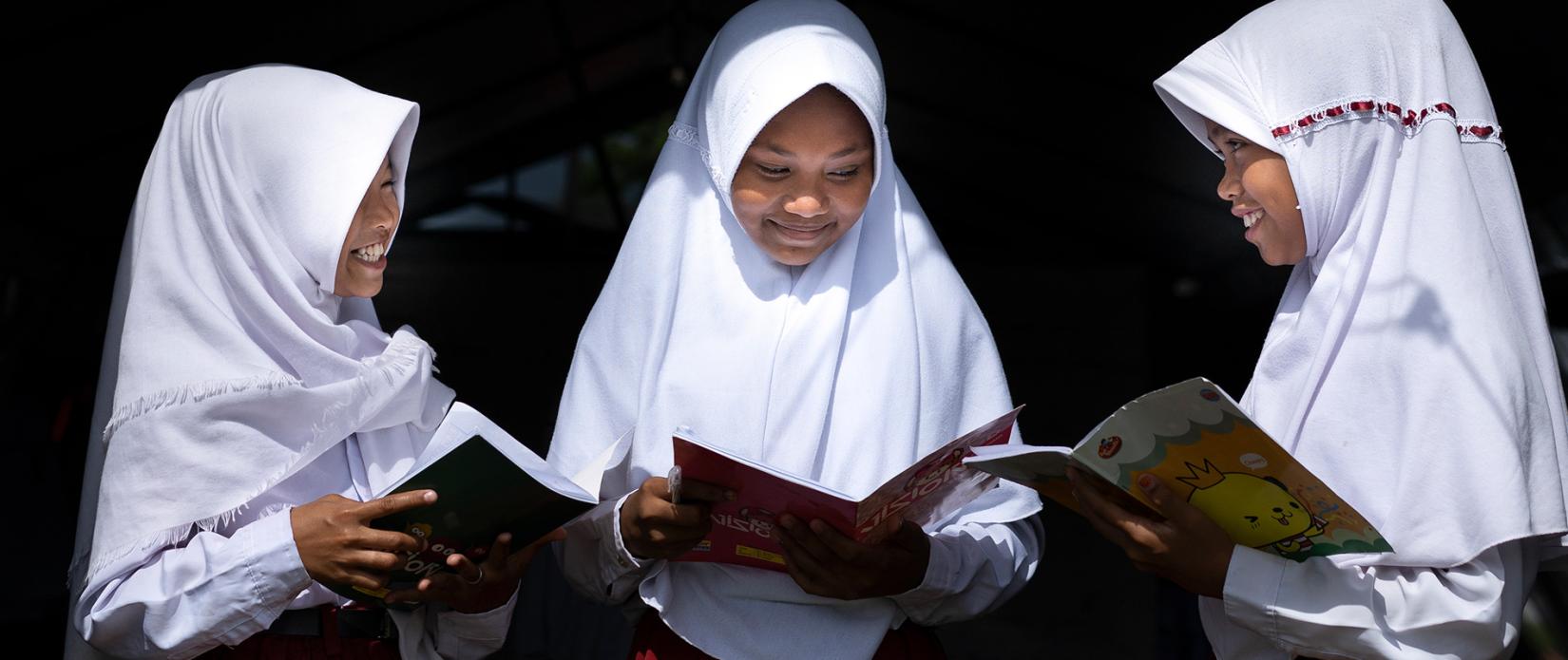Indonesia is the fourth largest country in the world by population, with a total of more than 270 million people. It is an independent republic and a member of the G20, the international forum that brings together the world’s major economies.
Indonesia is the largest UN peacekeeping troop contributor among the 15 UN Security Council members. It is a member of the UN Human Rights Council (2020-2022) and the UN Economic and Social Council (2021-2023).
Indonesia has seen robust economic growth and rapid development over the past decades. Poverty has been halved, access to education has increased on all levels, and more people have better access to health care, clean water, and justice than ever before. Indonesia’s economy is the largest in Southeast Asia and the 16th largest globally, with what equates to 5 per cent annual growth between 2013-2019. In 2019, Indonesia had a per-capita Gross Domestic Product (GDP) of US$ 4,135.
Indonesia officially became the 60th member of the United Nations on 28 September 1950. Since then, the United Nations has been working in partnership with the Government to enhance development, strengthen democracy, and end extreme poverty by 2030. At the country level, the relationship between the UN and the Government has evolved from a traditional donor beneficiary relationship into a strategic partnership to accelerate Indonesia’s rapid transformation to a high-income economy. Under the leadership of the Resident Coordinator, the UN Country Team in Indonesia currently provides policy advice, technical support and knowledge sharing on a host of development priorities, outlined in the current UN 5-year Strategy in Indonesia, the UN Sustainable Development Cooperation Framework (UNSDCF) 2021–2025.
The Government of Indonesia and the UN signed the UNSDCF in April 2020. This seminal document articulates the UN’s collective actions to support Indonesia in preserving and accelerating the achievements of the Sustainable Development Goals (SDGs). Through a multi-stakeholder consultation process, the UNSDCF is aligned with the National Medium-Term Development Plan (RPJMN 2020-2024) and has four strategic priorities: inclusive human development; economic transformation; green development, climate change and natural disasters; and innovation to accelerate the progress towards the SDGs.
In Indonesia, the UN Country Team consists of 23 Agencies, as well as separate Funds, Programmes, and non-resident agencies.



















